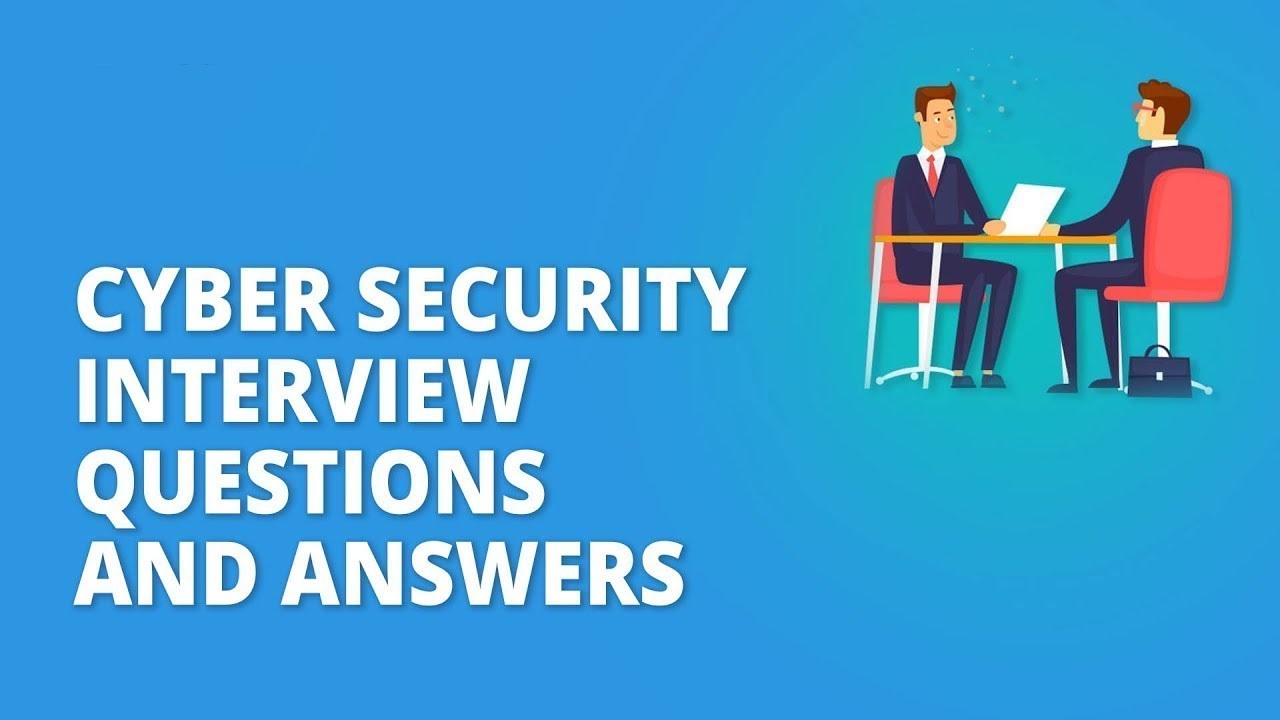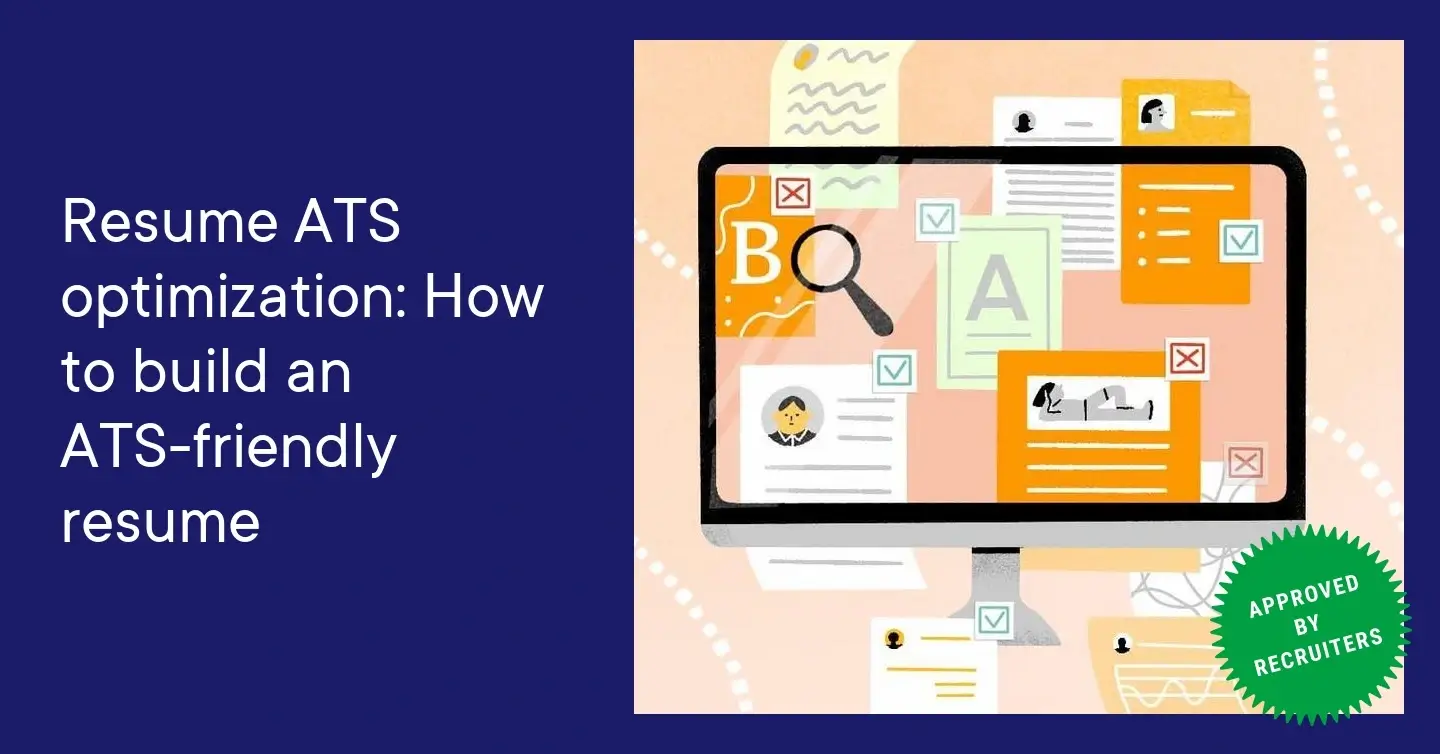Blog Detail

Navigating the Cybersecurity Specialist Interview Process in Canada
Jun 17, 2024
Navigating the Cybersecurity Specialist Interview Process in Canada
Introduction:
In an era where digital threats loom large, the role of cybersecurity specialists has become increasingly pivotal. Canada, like many other countries, faces a barrage of cyber threats, making cybersecurity specialists in high demand. However, breaking into this field requires more than just technical skills; it demands a comprehensive understanding of the interview process and the ability to demonstrate expertise in various domains of cybersecurity. In this comprehensive guide, we delve into the intricacies of the cybersecurity specialist interview process in Canada, offering insights, tips, and strategies to help aspiring professionals secure their dream roles.
Understanding the Canadian Cybersecurity Landscape:
Before delving into the interview process, it's crucial to grasp the dynamics of the cybersecurity landscape in Canada. With its rapidly growing digital infrastructure and increasing reliance on technology across sectors, Canada is vulnerable to cyber threats ranging from data breaches to ransomware attacks. Consequently, organizations across industries, including government agencies, financial institutions, healthcare providers, and tech companies, prioritize cybersecurity to safeguard their digital assets and customer data.
The Role of a Cybersecurity Specialist:
Cybersecurity specialists play a pivotal role in defending against cyber threats by designing, implementing, and managing robust security measures. Their responsibilities encompass a wide array of tasks, including:
- Assessing vulnerabilities in systems and networks.
- Developing and implementing security protocols and strategies.
- Monitoring systems for suspicious activities and potential breaches.
- Responding to security incidents and conducting post-incident analysis.
- Educating employees about cybersecurity best practices.
Preparing for the Cybersecurity Specialist Interview:
The cybersecurity specialist interview process in Canada typically consists of multiple stages, each designed to assess different aspects of the candidate's skills, knowledge, and experience. To excel in these interviews, candidates should focus on the following key areas:
- Technical Proficiency: Candidates should demonstrate a strong understanding of cybersecurity concepts, tools, and technologies, including but not limited to encryption, firewalls, intrusion detection systems, penetration testing, and security frameworks such as NIST and ISO 27001.
- Problem-Solving Skills: Employers often present candidates with hypothetical scenarios or real-world case studies to evaluate their ability to analyze complex security challenges and devise effective solutions.
- Communication Skills: Effective communication is essential for cybersecurity specialists to convey technical information to non-technical stakeholders, collaborate with cross-functional teams, and articulate security risks and recommendations to senior management.
- Industry Knowledge: Candidates should stay abreast of the latest trends, threats, and regulatory requirements in the cybersecurity landscape, particularly those relevant to the Canadian context, such as the Personal Information Protection and Electronic Documents Act (PIPEDA).
Navigating the Interview Process:
The cybersecurity specialist interview process typically consists of the following stages:
- Application and Resume Screening: The initial stage involves submitting a comprehensive cyber-security specialist resume highlighting relevant education, certifications, work experience, and technical skills. Recruiters and hiring managers use this information to shortlist candidates for further evaluation.
- Phone or Video Interview: Shortlisted candidates may undergo a preliminary phone or video interview to assess their communication skills, motivation, and fit for the role. This stage may also include technical questions to gauge the candidate's expertise.
- Technical Assessment: Depending on the role and organization, candidates may be required to complete a technical assessment, which could involve solving coding challenges, conducting vulnerability assessments, or simulating cyber-attacks.
- In-Person Interview: Candidates who progress to the final stage are invited for an in-person interview, where they meet with hiring managers, cybersecurity experts, and other stakeholders. This stage may involve behavioural interviews, technical discussions, and scenario-based questions.
Tips for Success in Cyber-Security Interview:
To increase their chances of success in the cybersecurity specialist interview process, candidates should consider the following tips:
- Research the Company: Gain a thorough understanding of the organization's business model, industry, and cybersecurity initiatives. Tailor your responses to demonstrate how your skills and experience align with the company's needs and objectives.
- Showcase Practical Experience: Highlight relevant projects, internships, or certifications that showcase your hands-on experience in cybersecurity. Provide concrete examples of how you've identified security vulnerabilities, implemented controls, or mitigated risks in previous roles or academic projects.
- Demonstrate Continuous Learning: The field of cybersecurity is constantly evolving, with new threats and technologies emerging regularly. Showcase your commitment to professional development by discussing relevant certifications, training programs, or industry conferences you've attended.
- Practice Problem-Solving: Familiarize yourself with common cybersecurity challenges and practice solving them through online platforms, capture-the-flag competitions, or cybersecurity forums. This will sharpen your analytical skills and help you approach technical questions with confidence.
How to Avoid Common Mistakes in Cyber Security Specialist Interviews:
Avoiding common mistakes in cybersecurity specialist interviews is crucial for presenting yourself as a competent and qualified candidate. Here are some key tips to help you navigate the interview process effectively and minimize potential pitfalls:
- Lack of Preparation: One of the most common mistakes candidates make is failing to adequately prepare for the interview. Ensure you research the company, understand its cybersecurity challenges and initiatives, and familiarize yourself with common interview questions and technical concepts relevant to the role.
- Overlooking Non-Technical Skills: While technical proficiency is essential for a cybersecurity specialist, don't overlook the importance of non-technical skills such as communication, problem-solving, and teamwork. Employers often seek candidates who can effectively communicate complex technical concepts to non-technical stakeholders and collaborate with cross-functional teams.
- Failing to Showcase Practical Experience: Simply listing technical skills on your cybersecurity specialist resume is not enough. Be prepared to discuss concrete examples of your experience in identifying vulnerabilities, implementing security controls, and responding to security incidents. Highlight relevant projects, internships, or certifications that demonstrate your hands-on expertise in cybersecurity.
- Ignoring Industry Trends and Best Practices: Stay updated on the latest trends, threats, and best practices in the cybersecurity landscape. Familiarize yourself with industry frameworks such as NIST, ISO 27001, and CIS Controls, and be prepared to discuss how you apply these frameworks to enhance security posture and compliance within organizations.
- Inadequate Communication Skills: Effective communication is essential for cybersecurity specialists to convey technical information to non-technical stakeholders and articulate security risks and recommendations to senior management. Practice communicating complex ideas clearly and concisely and be prepared to tailor your communication style to different audiences.
- Failure to Demonstrate Problem-Solving Skills: Cybersecurity specialists are often faced with complex security challenges that require creative problem-solving skills. Be prepared to discuss how you approach problem-solving, analyze security incidents, and develop effective solutions to mitigate risks and vulnerabilities.
- Not Asking Questions: Interviews are not just an opportunity for employers to assess candidates; they're also a chance for candidates to evaluate potential employers and determine if the role is the right fit for them. Prepare thoughtful questions about the company's cybersecurity strategy, team structure, career development opportunities, and organizational culture.
- Overconfidence: While confidence is important, avoid coming across as arrogant or overconfident during the interview. Acknowledge areas where you may have limited experience or knowledge and demonstrate a willingness to learn and grow professionally.
By avoiding these common mistakes and demonstrating a combination of technical expertise, problem-solving skills, and effective communication, you can position yourself as a strong candidate for cybersecurity specialist roles and increase your chances of success in the interview process.
20 Common Interview Questions for Cyber-Security-Specialist and their Answers with Examples
Certainly! Below are 20 common interview questions for cybersecurity specialist roles along with sample answers:
- Can you explain what a firewall is and how it works?
Answer: "A firewall is a network security device that monitors and controls incoming and outgoing network traffic based on predetermined security rules. It acts as a barrier between a trusted internal network and untrusted external networks, such as the internet, by inspecting packets and determining whether to allow or block them based on defined criteria."
- What is the difference between symmetric and asymmetric encryption?
Answer: "Symmetric encryption uses the same key for both encryption and decryption, while asymmetric encryption uses a pair of keys – a public key for encryption and a private key for decryption. Symmetric encryption is faster but requires secure key distribution, whereas asymmetric encryption provides greater security but is slower."
- How would you conduct a vulnerability assessment of a network?
Answer: "I would start by identifying all assets and their associated vulnerabilities, then prioritize them based on potential impact and likelihood of exploitation. Next, I would use a combination of automated scanning tools and manual testing techniques to identify vulnerabilities such as outdated software, misconfigured systems, and weak authentication mechanisms."
- What is your experience with intrusion detection systems (IDS) and intrusion prevention systems (IPS)?
Answer: "I have experience configuring and managing both IDS and IPS solutions to detect and prevent unauthorized access, malicious activities, and potential security breaches. I am proficient in analyzing IDS/IPS alerts, fine-tuning rule sets, and responding to security incidents in real-time."
- How do you stay updated on the latest cybersecurity threats and trends?
Answer: "I regularly participate in industry forums, attend cybersecurity conferences, and subscribe to reputable security blogs and newsletters. Additionally, I leverage threat intelligence feeds, security bulletins, and online training courses to stay abreast of emerging threats and best practices."
- Can you explain the concept of defense-in-depth and its importance in cybersecurity?
Answer: "Defense-in-depth is a layered security approach that employs multiple security controls at different layers of the IT infrastructure to mitigate risks and protect against various attack vectors. It includes measures such as firewalls, intrusion detection systems, encryption, access controls, and employee training, providing redundancy and resilience against potential threats."
- How would you handle a data breach or security incident within an organization?
Answer: "In the event of a data breach or security incident, I would follow established incident response procedures, which typically involve containing the incident, preserving evidence, notifying relevant stakeholders, and mitigating further damage. I would collaborate with cross-functional teams, including IT, legal, and communications, to investigate the incident, remediate vulnerabilities, and restore normal operations."
- What is your experience with security compliance frameworks such as NIST, ISO 27001, or GDPR?
Answer: "I have practical experience implementing and maintaining security controls aligned with industry standards and regulatory requirements, including NIST Cybersecurity Framework, ISO 27001, GDPR, and industry-specific compliance mandates. I ensure that organizations adhere to relevant standards and guidelines to mitigate risks and achieve compliance."
- How do you assess the security risks associated with third-party vendors and suppliers?
Answer: "I conduct thorough assessments of third-party vendors and suppliers by evaluating their security policies, practices, and controls. This includes reviewing security questionnaires, conducting on-site audits, and assessing their security posture against industry benchmarks. I also ensure that contractual agreements include provisions for security requirements and incident response protocols."
- Can you discuss your experience with penetration testing and ethical hacking?
Answer: "I have experience conducting penetration tests and ethical hacking exercises to identify vulnerabilities and assess the resilience of systems and networks against potential attacks. This involves simulating real-world attack scenarios, performing security assessments, and providing actionable recommendations to improve defenses."
- How would you handle a situation where an employee violates security policies or procedures?
Answer: "I would address the situation promptly and in accordance with established disciplinary procedures and organizational policies. This may involve documenting the violation, conducting an investigation to determine the root cause, and implementing corrective actions such as additional training, access restrictions, or disciplinary measures."
- What are some common signs of a malware infection on a system?
Answer: "Common signs of a malware infection include sluggish system performance, unusual network activity, unexpected pop-up windows, changes to system settings or files, and unauthorized access to sensitive data. I would proactively monitor systems for these indicators and employ malware detection tools to identify and mitigate threats."
- How do you prioritize security vulnerabilities for remediation?
Answer: "I prioritize security vulnerabilities based on factors such as severity, exploitability, potential impact on business operations, and the likelihood of exploitation. I employ risk assessment methodologies to categorize vulnerabilities and allocate resources effectively, focusing on addressing high-risk vulnerabilities that pose the greatest threat to the organization."
- Can you discuss your experience with incident response planning and execution?
Answer: "I have experience developing incident response plans that outline roles, responsibilities, and procedures for detecting, responding to, and recovering from security incidents. During incident response execution, I lead cross-functional teams in coordinating activities, communicating with stakeholders, and restoring normal operations while minimizing the impact of the incident."
- How do you ensure the security of cloud-based services and infrastructure?
Answer: "I employ a multi-layered approach to secure cloud-based services and infrastructure, including robust access controls, encryption of data in transit and at rest, continuous monitoring for suspicious activities, and adherence to cloud security best practices and compliance standards. I also collaborate with cloud service providers to ensure that security controls are implemented effectively."
- What are the key components of a security risk assessment?
Answer: "Key components of a security risk assessment include identifying assets and their value, assessing threats and vulnerabilities, analyzing the potential impact of security incidents, and prioritizing risks based on likelihood and severity. I also consider factors such as regulatory requirements, business objectives, and risk tolerance when conducting risk assessments."
- How do you address the human factor in cybersecurity?
Answer: "I recognize that human error and negligence can pose significant security risks to organizations. To address the human factor in cybersecurity, I prioritize employee training and awareness programs to educate staff about security best practices, phishing awareness, and social engineering tactics. I also implement user access controls and privilege management to minimize the risk of insider threats."
- Can you discuss your experience with security incident logging and monitoring?
Answer: "I have experience configuring and managing security incident logging and monitoring systems to track and analyze security events in real-time. This includes collecting and centralizing log data from various sources, correlating events to detect suspicious activities, and generating alerts for timely response and remediation."
- How do you ensure compliance with data protection laws and regulations?
Answer: "I ensure compliance with data protection laws and regulations by implementing appropriate technical and organizational measures to safeguard personal data, such as encryption, access controls, data masking, and privacy impact assessments. I also conduct regular audits and assessments to monitor compliance and address any gaps or non-compliance issues."
- What motivated you to pursue a career in cybersecurity?
Answer: "I have always been passionate about technology and intrigued by the evolving landscape of cybersecurity. The opportunity to protect organizations and individuals from cyber threats, safeguard sensitive information, and make a meaningful impact on security posture and resilience motivates me to continually expand my knowledge and expertise in the field."
These questions and sample answers can serve as a foundation for candidates preparing for cybersecurity specialist interviews, allowing them to articulate their skills, knowledge, and experience effectively to potential employers.








